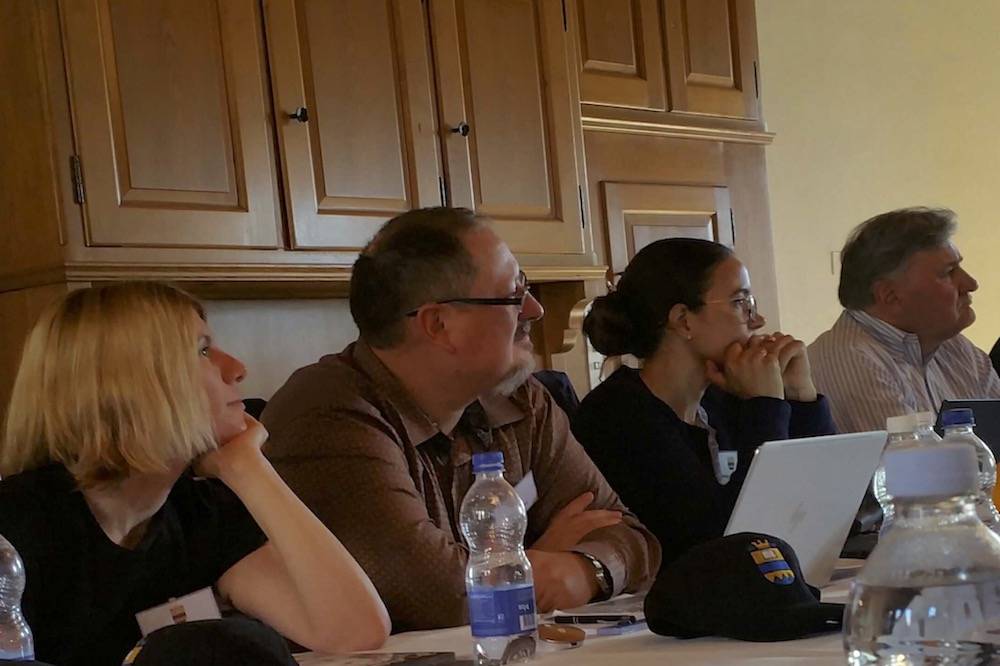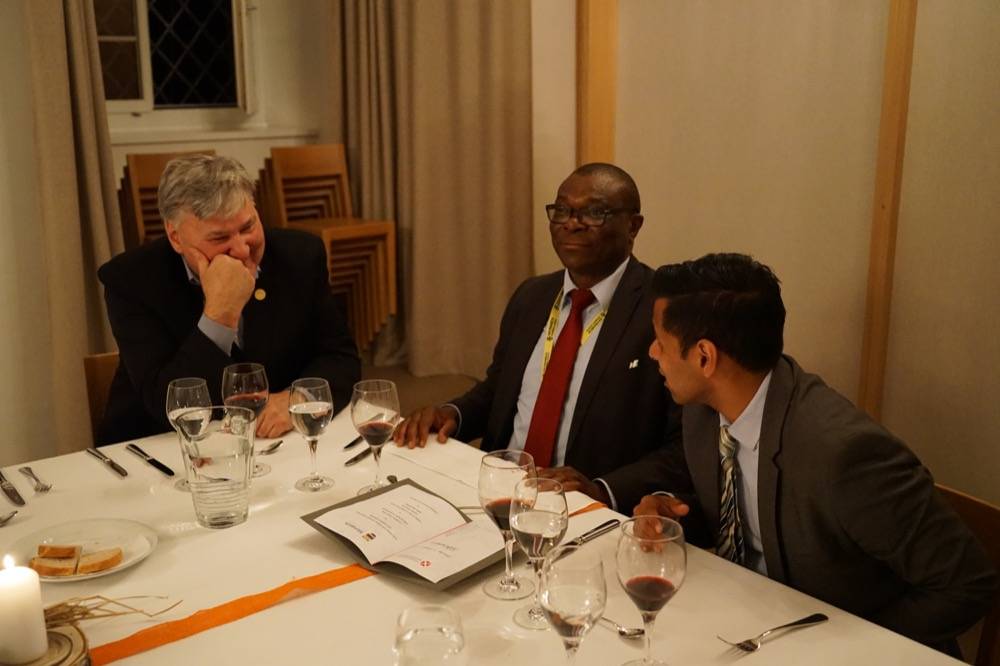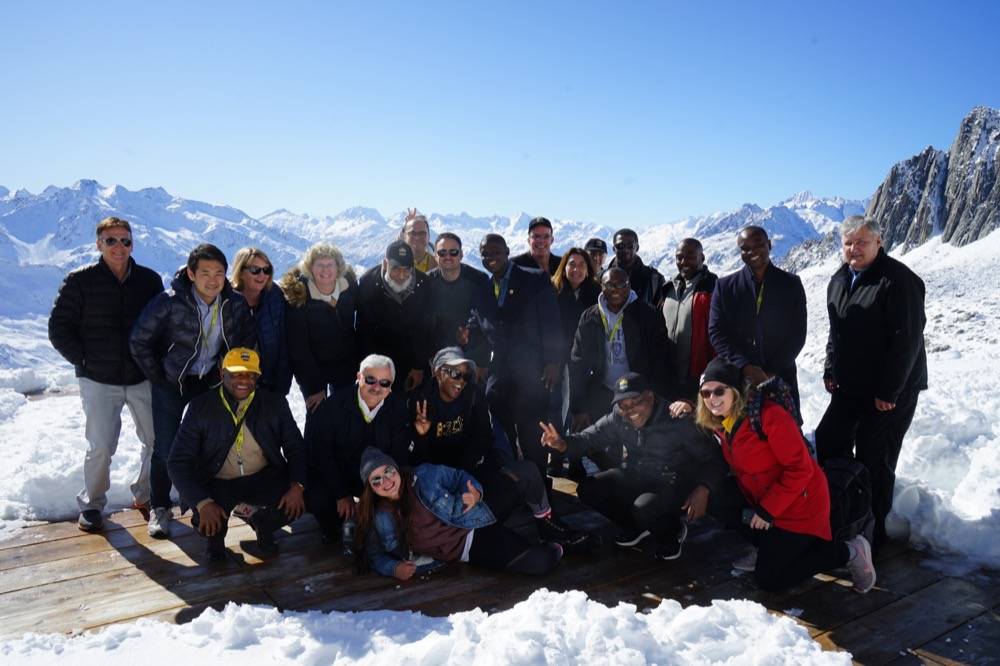
It is with great pleasure that, as the Dean of the School, I announce that Doctoral Candidate Robert Mahnic has successfully met the requirements under the PhD in Business Research program and is now welcomed as an Alumni of the Doctoral program.
Dr. Mahnic started with Monarch in June 2017 and completed the defense procedure earlier in the year in May 2021. Dr. Manhic satisfied all requirements of the program and has been welcomed as a Doctoral graduate of the School with the honor of “Cum Laude”.
Dr. Mahnic has been a strong supporter of Monarch since beginning with the school. He has attended several Doctoral workshops in Switzerland and has assisted in the development of courses at the introductory management level. Dr. Mahnic continues with Monarch as a faculty member. Please join us in congratulating Dr. Mahnic on his accomplishment and continued academic, professional and personal success as he now moves on to new challenges.
Reserch Abstract
Construction of infrastructure megaprojects is a critical component of global economic growth and development. These large-scale, multi- year, multi-billion dollar developments include highways, railways, mining and hydroelectric facilities, oil and gas facilities and pipelines. An example of megaproject development in Canada is the need for new natural gas and liquid energy pipelines to serve domestic and international markets. However, there are industry, government, stakeholder and public concerns with the current process, pace and outcomes of pipeline regulatory reviews and decision making (Forrester et al., 2015; Mortlock, 2019). One of the primary concerns is the problem of managing unresolved and conflicting Indigenous rights and interests in megaproject regulatory reviews. The situation has reached a crisis point in Canada and appears to have become a complex problem that has no agreed upon solution between developers, governments and Indigenous groups.
The research includes a review and critique of the literature on public-private-political interests, stakeholder management, social licence, complex problems and social conflict. The triangulated research approach used content analysis of hearing documents and an interview / questionnaire. The research examines two energy pipeline megaprojects that went through the Canadian regulatory review process: the Northern Gateway Pipeline and the Trans Mountain Pipeline Expansion. The data consists of the written argument-in-chief of selected British Columbia and Alberta Indigenous groups with a combined population of 24,000 members as well as data from interview / questionnaires with participants in the pipeline proceedings.
Six themes and 104 issue categories were developed in the qualitative content analysis. The case studies show the focus of Indigenous rights and interests for the two case studies can be synthesized into three primary themes with a total of 29 issue categories of highest importance to the selected Indigenous groups. These include failures in the duty to consult and accommodate potential project impacts in Indigenous traditional territories; potential biophysical contamination and human health impacts of oil spills from marine oil tanker shipping and pipelines; and, potential impacts to Indigenous land, water and resource use and harvesting.
The research introduces the Consultation Collisions Concept and Scenario Approach and a prototypical Indigenous Rights and Interests Pathways Model. The model may help address problems associated with the identification and management of Indigenous rights and interests conflicts during the pipeline regulatory review process and encourage collaborative approaches in pipeline megaproject regulatory reviews.

Dr. Mahnic At A Workshop

Dr. Mahnic Enjoying Colleagues

Dr. Mahnic In Switzerland
About Dr. Mahnic

Dr. Robert Mahnic is a Doctor of Philosophy in Business Research Graduate and also holds a MPhil in Business Research from Monarch. He holds a Master of Arts From the University of Saskatchewan, an Honours Bachelor of Arts from the University of Regina and Certificate of Management from SAIT Polytechnic in Alberta. Mr. Mahnic has participated in many academic, consulting and professional research projects and has been a principal or contributing author of 100 consulting and management reports and several journal articles and proceedings. He has also presented or facilitated group discussions at more than 30 conferences and workshops. At present, he holds a professional position at TransCanada PipeLine Corporation and was previously with the National Energy Board, Indigenous and Northern Affairs Canada, AMEC Earth & Environmental, Communiplan Inc., Unbridle Pipelines, the University of Saskatchewan and Saskatchewan Municipal Affairs.

